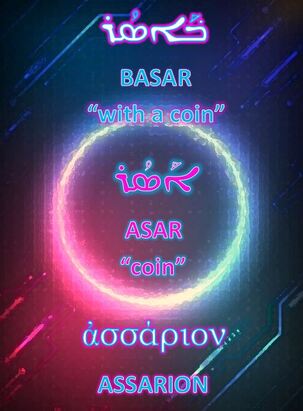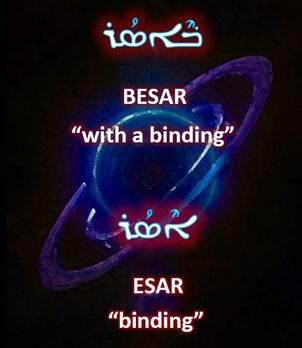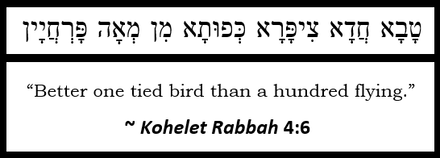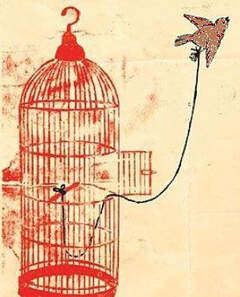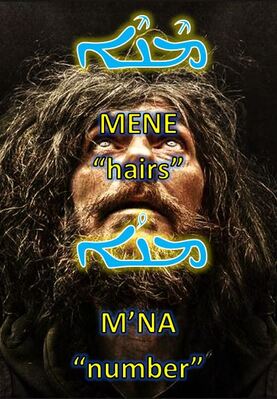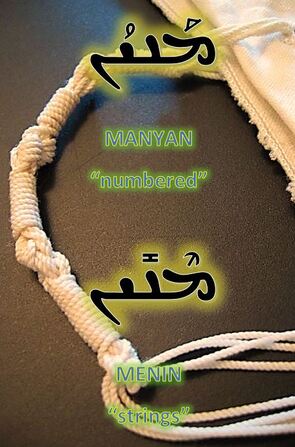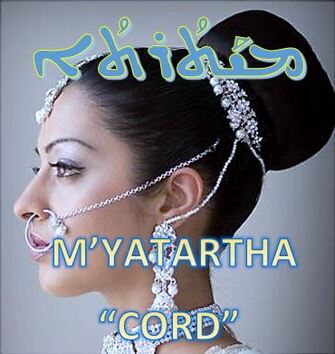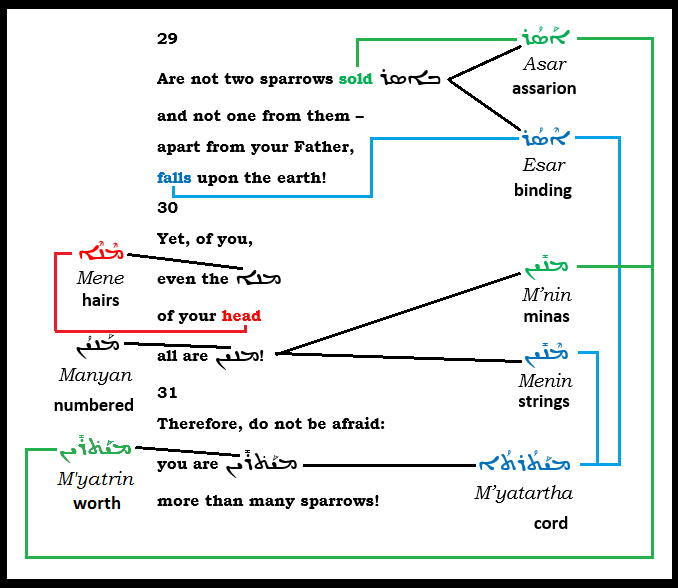MORE THAN SPARROWS
by Jeremy Chance Springfield
3/19/20
The believer lives an expendable life.
It's blunt, but it is the truth.
It is one of the harsher realities about having faith in the Creator of heaven and earth. We are not our own. All who have given over the reigns of this life to the Most High are at His mysterious mercies. No longer selfishly in control of our own future, we who have accepted the yoke of Heaven have surrendered ourselves to His unfathomable plans that will ultimately bring true worship into all the earth.
Sometimes that means difficult roads, suffering, and even death lay before us.
In our calling to spread knowledge of Him and things He loves into the world, we can face unpleasant situations that can not only ask but even take all we have to give. This might be a difficult truth to accept, but it is one exemplified even by the Messiah Yeshua Himself. He paid the highest price to bring light to the darkness of this world. He warns us that the toll may well be the same for those who attach themselves to His merit. If it means fading away so that He can be more clear, than we owe Him our everything.
It's blunt, but it is the truth.
It is one of the harsher realities about having faith in the Creator of heaven and earth. We are not our own. All who have given over the reigns of this life to the Most High are at His mysterious mercies. No longer selfishly in control of our own future, we who have accepted the yoke of Heaven have surrendered ourselves to His unfathomable plans that will ultimately bring true worship into all the earth.
Sometimes that means difficult roads, suffering, and even death lay before us.
In our calling to spread knowledge of Him and things He loves into the world, we can face unpleasant situations that can not only ask but even take all we have to give. This might be a difficult truth to accept, but it is one exemplified even by the Messiah Yeshua Himself. He paid the highest price to bring light to the darkness of this world. He warns us that the toll may well be the same for those who attach themselves to His merit. If it means fading away so that He can be more clear, than we owe Him our everything.

It might seem like a cold thing.
It might feel like He doesn’t care about our plight.
Believers might just be a dime a dozen, so what if a few carry His Kingdom message to the door of destruction and never return?
It can truly sound harsh when put that way.
But there is also another reality in this truth: we can trust Him that He values us in the work that asks us to give our all.
It might feel like He doesn’t care about our plight.
Believers might just be a dime a dozen, so what if a few carry His Kingdom message to the door of destruction and never return?
It can truly sound harsh when put that way.
But there is also another reality in this truth: we can trust Him that He values us in the work that asks us to give our all.
He knows our worth and that it remains even if we must eventually give ourselves completely in this journey of doing His will. The willingness to lay down our life does not mean we are not of value to Him. In the book of Matthew chapter 10, Yeshua speaks at length of the dangers those who follow after Him might face, spanning from fellow believers to pagan Gentiles. In that declaration of our potential loss of life, He addresses briefly the value we have as His agents in the earth. The words He shares in this context are seemingly straightforward and curt, but upon closer inspection, hold a worth that beautifully exemplifies the deeper value we possess as His people. A cursory reading of the Aramaic Peshitta of Matthew 10:29-31, speaks to this sentiment of our worth.
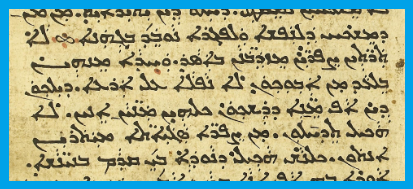
29 Are not two sparrows sold with a coin, and not one from them – apart from your Father, falls upon the earth!
30 Yet, of you, even the hairs of your head all are numbered!
31 Therefore, do not be afraid: you are worth more than many sparrows!
30 Yet, of you, even the hairs of your head all are numbered!
31 Therefore, do not be afraid: you are worth more than many sparrows!
These words are meant as comfort and encouragement to the disciples in the midst of a very concerning declaration of the serious troubles awaiting those fulfilling the calling Yeshua has set. One can see from these verses that Yeshua wants His followers to know they have a worth in Heaven’s eyes that matters in light of the persecution that might be experienced carrying out the will of the Holy One.
But still, this is somewhat of an abrupt reprieve to the lengthy threnodies He mentions. Is it really all that comforting to read these words of our supposed worth that are couched among the cautionary terms that fill the chapter? Just how much can the believer’s heart be alleviated who reads these terse verses?
But still, this is somewhat of an abrupt reprieve to the lengthy threnodies He mentions. Is it really all that comforting to read these words of our supposed worth that are couched among the cautionary terms that fill the chapter? Just how much can the believer’s heart be alleviated who reads these terse verses?
I believe it is an honest question posed to anyone who considers their life and the examples of so many who have followed Yeshua throughout the centuries. It isn’t always pleasant ends that await the faithful. How then, can we rightly perceive our value in His eyes? The answer, it seems, might actually be staring right back at us while we read the above words.
Such a thing can be proposed by returning to the Aramaic rendering of the above passage and digging a little deeper into what Yeshua was actually saying. While I translated the Aramaic text above in a legitimately appropriate manner, there is much, much more going on in what Yeshua is saying that illuminates for us exactly how much value we possess in the Kingdom. Let us examine that text now in a more intimate fashion and see how Yeshua’s words carried a depth and richness that actually conveys our worth as His agents in the earth.
Such a thing can be proposed by returning to the Aramaic rendering of the above passage and digging a little deeper into what Yeshua was actually saying. While I translated the Aramaic text above in a legitimately appropriate manner, there is much, much more going on in what Yeshua is saying that illuminates for us exactly how much value we possess in the Kingdom. Let us examine that text now in a more intimate fashion and see how Yeshua’s words carried a depth and richness that actually conveys our worth as His agents in the earth.

10:29 Are not two sparrows sold with a coin, and not one from them – apart from your Father, falls upon the earth!
To begin, the phrase “with a coin” in 10:29 is deceptive in its simplicity, for in reality, Yeshua uses the languages of the land of Israel as they were known in His day in a clever method that shows us it is worth listening carefully to what He is trying to tell His disciples. The way the Peshitta reads in this phrase is the simple presentation of BASAR “with a coin.” The term ASAR or ASARA as it is in some instances, is merely an Aramaicized form of the Greek term ASSARION, itself from the Latin ASSARIUS. The assarion was the lowest-valued regular-issued coin produced for the Roman Empire. In the context of His statement, it would seem that the usage of BASAR would naturally mean “with a coin.”
However, Yeshua is at the same time telling us something altogether different. This can be perceived in that the phrase He uttered could instead be read distinctly as stemming from the Aramaic language and its term of ESAR, meaning "binding," which just so happens to be spelled exactly the same as the Greek loan-word of ASAR "coin." As such, it would be pronounced as BESAR “with a binding.” This would mean that He was ingeniously using the term in a translingual manner to imbue His statement with a deeper meaning for His disciples.
The truth of the innovative nature of this expression of “with a binding” only really comes when the reality is considered of how small birds have been sold in the Middle Eastern marketplaces from ancient times even to this very day: they are in some instances, in fact, tied together one bird to the other with a binding upon their legs, in groups of two or many more, and can even be left to flit about above the heads of their sellers as evidence that the birds are healthy, unmaimed, and capable of flight. Such a thought is even preserved in the Aramaic text of Kohelet Rabbah (Ecclesiastes Rabbah) 4:6, where the concept of tying birds with bands is also mentioned, using the exact same Aramaic word as found here for the fowl.
The method of containing a bird by tying a cord to its leg is thus seen to be one of truly ancient usage. In fact, it appears that the mention of it by Yeshua here in the Aramaic is the earliest recorded example we have of doing this. The accompanying sentiment from Kohelet Rabbah 4:6 is from around the third century CE and reflects in its brief statement the long-standing tradition of tying birds in such a way.
Returning to the above passage and unique understanding, while the initial thought is to read BASAR as “with a coin,” due to the use of “sold” that comes before it, then upon reading the idea of the birds “falling” to the ground, the alternate, uniquely-Aramaic definition of the term as “with a binding” is understood as also totally intended by Yeshua. This speaks to what Yeshua is saying about one falling to the ground – it is unlikely that a single exhausted bird will drag its tethered companions to the ground, who instead, by their strength, keep it in the air. This insight only exists in the Aramaic text here in Matthew. The synoptic parallel is in Luke 12:6, where the evangelist only caught the Greek coin concept in his rendering of what was said, presenting the term for the “coins” as ASARIN, which is the direct Aramaic loanword of the Greek term ASSARION, and does not convey the translingual concepts which Yeshua actually spoke in the ears of Matthew, who, alone of the two recorders of this statement, was present to hear the nuance of the clever word-play.
As can be seen, the simplicity of the traditionally understood statement is beginning to be revealed as a merely thin veneer under which complex layers await to be revealed.
But let us continue to unveil what wonders He was conveying in these brief words!
As can be seen, the simplicity of the traditionally understood statement is beginning to be revealed as a merely thin veneer under which complex layers await to be revealed.
But let us continue to unveil what wonders He was conveying in these brief words!

10:30 Yet, of you, even the hairs of your head all are numbered!
Yeshua builds significantly upon this dual intent of meaning as He continues into the next statement found in 10:30, where we are told that the “hairs” of our head are “numbered.” The Aramaic here for “hairs” is MENE, and the Aramaic for “numbered” is MANYAN. In the singular, the two terms are spelled identically, and only pronunciation and context shows the distinction of meaning. This means it might seem to some that Yeshua was possibly saying the “hairs” of their head were “hairs” – or possibly the “numbers” of their head were all “numbered.” This would possibly sound strange to consider in such a context, but in actuality, it might have made complete sense, as will be shown below.
In addition to the above, there is a secondary level of meaning in this usage that begins a deeper dive that suggests His intent of meaning was truly multi-faceted.
Spelled identically to the term MANYAN, but pronounced only slightly differently as MENIN, is the Aramaic word that means “strings.” If understood in this manner, it would seem like Yeshua was saying the “hairs” of their head were “strings.” Such a potential meaning as this is one used originally in the Hebrew of Ezekiel 8:3, where the Spirit grabs the prophet by the “hair” of his head, yet the word used for “hair” in that instance also means “tassels / strings.” The imagery here to the hair of a believer as strings parallels precisely that of the fallen sparrow dangling by the “binding” that is the alternative meaning of the phrase back in 10:29! The connection between the alternative meanings in the Aramaic truly is astounding.
Spelled identically to the term MANYAN, but pronounced only slightly differently as MENIN, is the Aramaic word that means “strings.” If understood in this manner, it would seem like Yeshua was saying the “hairs” of their head were “strings.” Such a potential meaning as this is one used originally in the Hebrew of Ezekiel 8:3, where the Spirit grabs the prophet by the “hair” of his head, yet the word used for “hair” in that instance also means “tassels / strings.” The imagery here to the hair of a believer as strings parallels precisely that of the fallen sparrow dangling by the “binding” that is the alternative meaning of the phrase back in 10:29! The connection between the alternative meanings in the Aramaic truly is astounding.
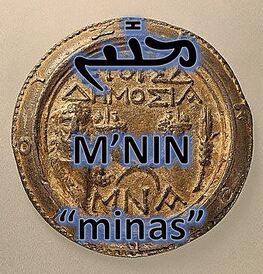
A third option even exists in how this Aramaic statement could be understood here in Matthew: the word that I have translated as “numbered” or “strings” in this instance – MANYAN / MENIN – could also be pronounced just slightly differently as M’NIN, being the plural of “mina,” which was a coin used in the Roman Empire during the time of Yeshua. In this regard would come to play the term in the Aramaic of D’RISHKUN “of your head,” which would stand out as the tribute tax was known to the Aramaic-speaking Jews as KESEF RISHA “head-silver,” a moniker that is used over ten different times throughout the Peshitta NT text to describe the concept of “tribute.” This connection is worth noting in that a mina was a set weight of silver equal to one hundred denarii, firmly linking the concept of mina / m’nin and “head-silver” in the minds of any who would have heard these words of Yeshua. The result would be something like “the hairs of your head are minas,” with the understanding of the tribute tax – the individual price that must be paid to be included in the Kingdom. Additionally, archaeological finds have shown that many ancient coins of the Middle East, especially those around Tyre in the land of Israel, were pressed with the image of an owl or an eagle, or some other type of bird upon them. This is significant in that although the Aramaic term in 10:29 and 10:31 is translated acceptably as “sparrow,” due to etymological development, the term is actually a generic one that can also be used for “fowl” of almost any type.
As the reader can see, the complexity of Yeshua’s otherwise straightforward statement to His disciples is one of astounding degree.

10:31 Therefore, do not be afraid: you are worth more than many sparrows!
All of this culminates in the wording of 10:31, when Yeshua says “you are worth” more than many sparrows. This concluding statement wraps up the thought nicely as it is presented on the surface understanding. However, there is more to it, just like with the two previous statements. The Aramaic of this phrase is the word M’YATRIN that can not only mean “significant” or “better,” and thus the concept of “worth,” but it can also have the idea of “to be strung with cords,” based off its alternate meaning from the singular M’YATARTHA, all from the root YATHAR, which carries the dual meaning of “better” and “cord.”

The alternate understanding of this third declaration, then, is that the believer need not fear because we have more “cords” tied to us than the sparrows! That is to say, He cares for us more than all of His other creations. We are the only ones in His image, and so we are more dear to Him than anything else, even if we must be used up in the process of restoring this fallen world.
This summarizing statement thus possesses in its rich alternative meaning a connective concept that fits seamlessly with the alternative definitions which are embedded within the previous two declarations. It is truly amazing how Yeshua utilized seemingly so effortlessly the depth inherent in the Aramaic language to instill in these three brief sentences so much fullness of meaning. In clear contrast, the Greek texts of this passage, as well as the Medieval Hebrew Matthew texts, display not even a hint of the depth that the Aramaic seems to so effortlessly possess in this passage of the Peshitta.
The end result is an incredibly labyrinthine statement which weaves in and out of itself, referencing concepts backwards and forwards while allowing for layers of nuanced appreciation regarding what exactly was being intended by Yeshua’s words. It might be difficult to really wrap one’s mind around if Aramaic is not yet a working language in the reader’s mind.
For this reason, I have attempted to create a graphic showing how the terms are interrelated to each other and to the different concepts presented in the three statements.
This summarizing statement thus possesses in its rich alternative meaning a connective concept that fits seamlessly with the alternative definitions which are embedded within the previous two declarations. It is truly amazing how Yeshua utilized seemingly so effortlessly the depth inherent in the Aramaic language to instill in these three brief sentences so much fullness of meaning. In clear contrast, the Greek texts of this passage, as well as the Medieval Hebrew Matthew texts, display not even a hint of the depth that the Aramaic seems to so effortlessly possess in this passage of the Peshitta.
The end result is an incredibly labyrinthine statement which weaves in and out of itself, referencing concepts backwards and forwards while allowing for layers of nuanced appreciation regarding what exactly was being intended by Yeshua’s words. It might be difficult to really wrap one’s mind around if Aramaic is not yet a working language in the reader’s mind.
For this reason, I have attempted to create a graphic showing how the terms are interrelated to each other and to the different concepts presented in the three statements.

When we are able to perceive what was really going on in Yeshua’s brief statements, we can better appreciate what He was conveying. The manifold nature of the passage is an attempt to convey the worth of the believer in the eyes of the Kingdom. Yes, we are called to risk our lives in the presence of pagan Gentiles and hostile responses on the home front, but we still matter to the Most High. Yeshua thus crafts a complex portrayal of the believer’s value by way of the polysemous features of the Aramaic language and its own encounter with a Gentile tongue. The consideration and effort that had to have gone into this interwoven declaration is a testament to our meaningfulness before the Holy One.
The Kingdom must come.
We must do our all to see it realized in the earth.
If such is potentially our lot, let us face it with the surety that we are of great value to the Kingdom. If He should use us up to our last breath, then we can take comfort knowing that we were meaningful in His plan to the very last heartbeat. As we follow in the footsteps of the One who gave up all to see life bestowed to man, let us not think for a moment we have no worth to Him, but remember we are the results of His desire to save the image-bearers of the Most High. In the plan of redemption, even in self-sacrifice we are worth more than many sparrows.
The Kingdom must come.
We must do our all to see it realized in the earth.
If such is potentially our lot, let us face it with the surety that we are of great value to the Kingdom. If He should use us up to our last breath, then we can take comfort knowing that we were meaningful in His plan to the very last heartbeat. As we follow in the footsteps of the One who gave up all to see life bestowed to man, let us not think for a moment we have no worth to Him, but remember we are the results of His desire to save the image-bearers of the Most High. In the plan of redemption, even in self-sacrifice we are worth more than many sparrows.
All study contents Copyright Jeremy Chance Springfield, except for graphics and images, which are Copyright their respective creators.

